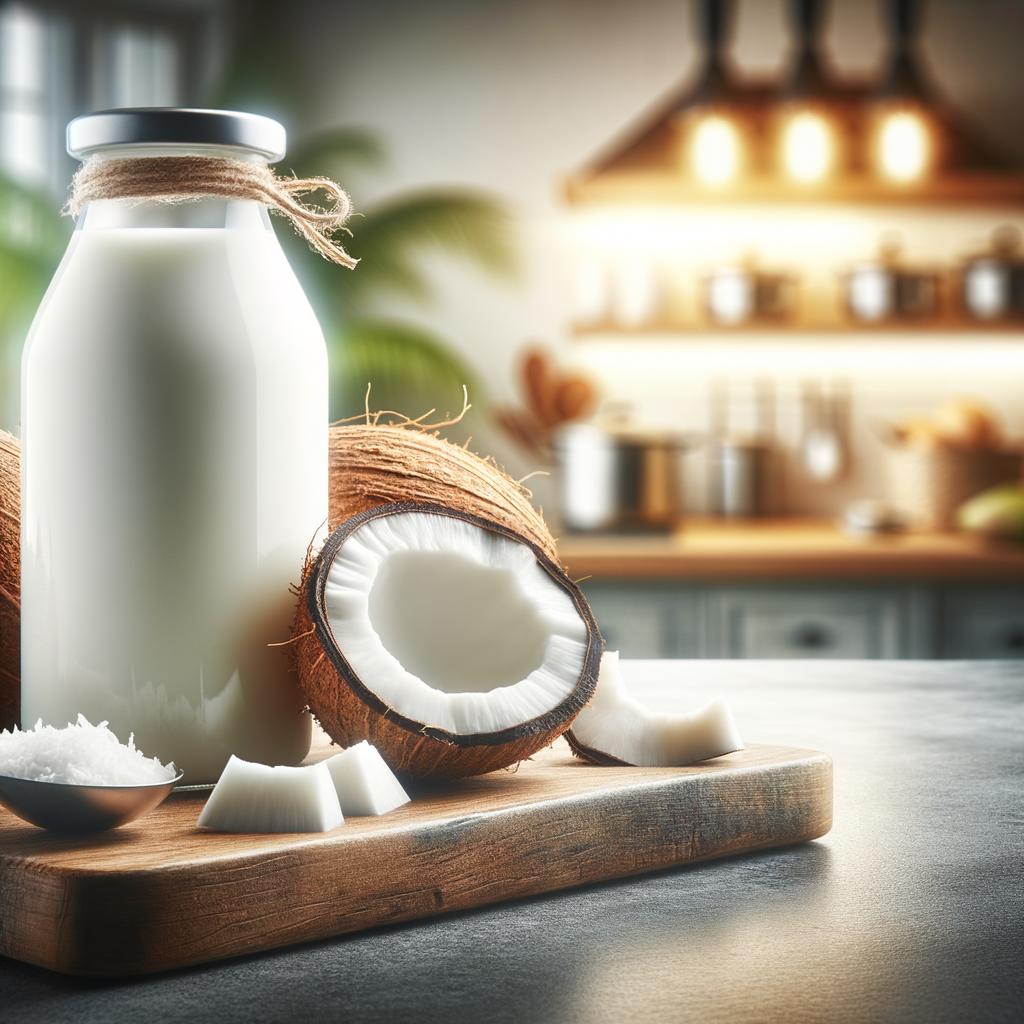Thick Coconut Milk

Description
Thick coconut milk, a luscious and velvety ingredient, is a delectable product of the majestic coconut palm. It is characterized by its creamy texture and rich, slightly sweet, and nutty flavor. This opaque, milky-white liquid is derived from the gratings of mature coconut meat. Its unique trait lies in its ability to lend a luxuriously rich and creamy texture to dishes, a charm that other dairy and non-dairy alternatives struggle to replicate.
Primary Uses
Thick coconut milk is a culinary chameleon, finding its place in a broad spectrum of cuisines and dishes. It is a cornerstone in many Southeast Asian dishes, such as Thai curries and Filipino 'ginataan' desserts. In Indian cuisine, it is often used in 'korma' and 'payasam'. Beyond the savory realm, it is also a key player in a plethora of desserts and beverages, from the tropical Piña Colada to the comforting Atole from Mexico. Apart from its culinary uses, it is also known for its moisturizing properties and is often used in skincare products and hair treatments.
History
The history of thick coconut milk is woven into the tapestry of tropical cultures where coconut palms naturally grow. Its origin can be traced back to the ancient cuisines of the Indian subcontinent and Southeast Asia. Over time, explorers and traders carried coconuts to different parts of the world, leading to its incorporation in various global cuisines. There are countless folklores associated with coconut milk. In Filipino mythology, for instance, the coconut tree was born from a giant turned into a plant by divine beings, its fruits producing the precious coconut milk.
Nutritional Information
Thick coconut milk is not just a feast for the palate, but also a powerhouse of nutrition. It is high in lauric acid, a medium-chain fatty acid that the body metabolically uses similar to carbohydrates, providing a quicker source of energy. It also contains significant amounts of minerals like manganese, copper, and magnesium. While it is higher in fat and calories compared to regular milk, it is a good option for those following a vegan or lactose-free diet. Its high fiber content compared to other milk alternatives also offers a unique advantage. However, like all foods, it should be consumed in moderation due to its high saturated fat content.

